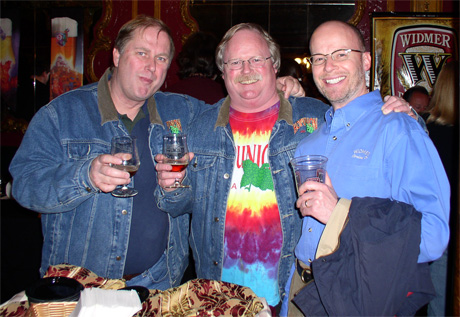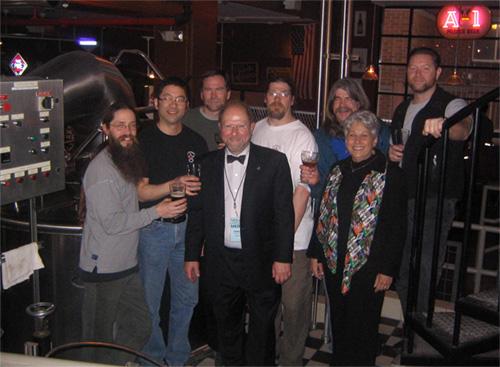It was announced today that a local Seattle developer, the Sabey Corporation, has bought the historic Rainier Brewery along Interstate 5 and plans to develop the space into a multi-use area for shopping, business offices, living spaces and light industry. For $9.9 million, they got 5.5 acres, which includes “310,000 square feet in four former brewery buildings: the Brew House, the Malt House, the Bottling Plant and the General Office.”
The Rainier Brewery was built in 1903 by the Seattle Brewing & Malting Co. and Georgetown was originally created as a company town, though annexed by Seattle in 1910. Three local breweries, Claussen-Sweeney Brewing, the Bay View Brewery (a.k.a. Kopp & Hemrich) and the Albert Braun Brewing Association merged together in 1892 to form the Seattle Brewing & Malting Co. Rainier celebrated their 100-year anniversary in 1978, though the brand was not created until May of 1893, when the newly merged company needed a new brand name for their beer. Ten years later it would be the sixth largest brewery nationwide and the west coast’s biggest. After prohibition, Fritz and Emil Sick bought first the brewery (in 1933) and then the Rainier Brand (in 1935). A few years later they installed the 12-foot neon “R” that became a Seattle landmark (which it was officially declared in 1993). Initially, it rotated but after Interstate 5 was built it remained stationary for fear it would distract motorists. After being very popular for several decades, the brand was sold to G. Heilmann in 1977 and then it slipped in and out of other hands until 1996, when Stroh’s acquired it. |
| They got out of the beer business three years later and brewing of “the Green Death” was moved down the road to Olympia Brewery in Tumwater after Pabst bought the brand name. The Tumwater plant closed in 2003 but Pabst continues to own and produce the Rainier label and last year even started an ad campaign playing upon the nostalgia for “Vitamin R” called Remember Rainier. It was finally removed on July 3, 2000 and replaced with a green “T” about the same size for Tully’s Coffee, who had moved their headquarters to the building. Many saw the switch as a change in Seattle’s beverage priorities. The “R” was donated to Seattle’s Museum of History and Industry, where it remains today. |
|
Under the new development plan, many of the current tenants will be invited to stay, including Georgetown Brewing Co., a small craft brewery that has been in the old building since September 2002. Sabey believes that the neighborhood of Georgetown is ripe for a renaissance and their acquisition of the property may also facilitate growth in the area. Renovations are not likely to begin for at least eighteen months and won’t be finished until at least 2012. Sabey also owns the Post-Intelligencer building along with several other prominent historic Seattle properties. Some of Sabey’s previous projects have included “converting a chicken-processing plant into the Elliott Park North biotech building and converting the 1910 Sisters of Providence Hospital into the James Tower life-sciences center.” They also own a piece of the Seattle Supersonics basketball team. My initial sense that while I’m glad that they will preserve the Rainier brewery in some fashion, the look of the planned renovations seem a little too clean to me, a little too thought out. Sometimes too much planning results in an area that’s not organic since it isn’t allowed to be created naturally. |
I’m thinking of areas like LoDo in Denver or the Warehouse District in Cleveland where in each case one prominent building was renovated, which led to another and then another until after a period of time the entire neighborhood had been transformed. This looks like the whole area will be done in one fell swoop which may or may not work, depending on how people perceive it. Seattle will either accept it or avoid it for being too Disneyfied, meaning it could seem too plastic, too forced and inauthentic. At least that’s how the drawing of the proposed changes strike me on first blush. Only time will tell. If only they’d bring back the giant neon “R.”
An artist’s rendering of planned development at the original Rainier Brewery site.
(Studio Meng Strazzara, October 10, 2006: Jim Bryant/Seattle Post-Intelligencer)



